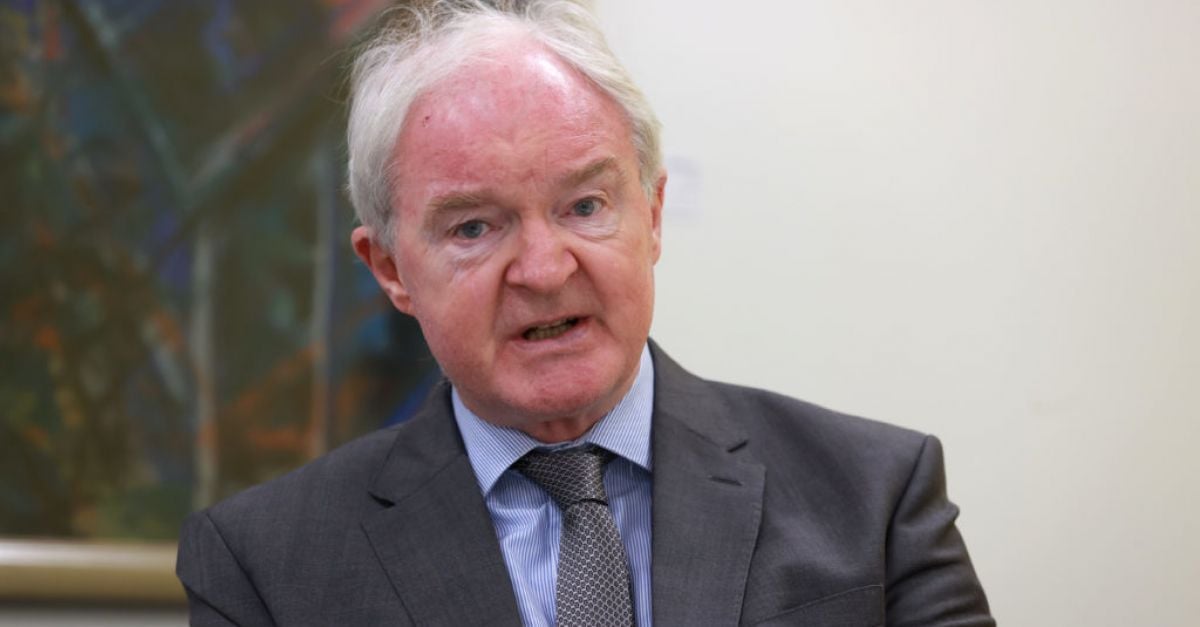The Pat Finucane Murder Case: A Complex Legacy of Justice and Politics
The murder of Pat Finucane, a prominent Belfast solicitor, in February 1989 remains one of the most contentious and emblematic cases of the Troubles in Northern Ireland. Finucane was shot dead in his family home by loyalist paramilitaries, an act that has since been linked to collusion between state forces and paramilitary groups. The recent discussions surrounding a new Troubles legacy commission and its potential to investigate this case have reignited debates about justice, accountability, and the intricate relationship between the UK and Irish governments.
The Role of the Independent Commission for Reconciliation and Information Recovery (ICRIR)
Sir Declan Morgan, the chief commissioner of the ICRIR, recently addressed the Stormont Assembly committee, stating that the commission had the competence to investigate the Finucane murder. He emphasized that the ICRIR could have taken on this case, which involves significant allegations of collusion, without undermining its mandate. The ICRIR was established under the Conservative government’s Legacy Act, which aimed to address the legacy of the Troubles by halting numerous civil cases and inquests into related deaths.
The ICRIR has the authority to investigate over 3,500 killings and has already received more than 100 requests from families seeking information about their loved ones. However, the UK government has opted for a public inquiry into the Finucane case, citing an international agreement made over two decades ago with the Irish government as the primary reason for this exceptional treatment.
The Public Inquiry: A Commitment to International Law
Northern Ireland Secretary Hilary Benn articulated that the Finucane case is “exceptional” due to the UK’s commitment to a public inquiry as part of an international agreement. This commitment, made between the UK and Irish governments, underscores the importance of adhering to the rule of law on an international scale. Sir Declan echoed this sentiment, stating that failing to honor the commitment could undermine the principle of international law.
He pointed out that the expectation of delivering on intergovernmental commitments is crucial for maintaining trust and integrity in international relations. The Finucane family has long campaigned for a public inquiry, and the UK government’s recent decision to order one reflects the weight of this historical commitment.
The Limitations of Public Inquiries
Despite the decision to pursue a public inquiry, Sir Declan raised concerns about the effectiveness of such inquiries in disclosing classified information. He noted that both public inquiries and the ICRIR operate under constraints imposed by the government, which retains the power to direct what information can be disclosed. This raises questions about the transparency and accountability of public inquiries, as families may be led to believe they will receive comprehensive answers, only to find that significant information remains undisclosed.
Sir Declan’s comments highlight a critical issue: the potential for public inquiries to create unrealistic expectations among families seeking justice. He cautioned against the notion that public inquiries are inherently more powerful than the ICRIR, emphasizing that both are subject to governmental oversight.
The Political Context: A Tenuous Relationship
The decision to pursue a public inquiry into the Finucane case also reflects the broader political context surrounding the Legacy Act and the ICRIR. The new Labour government has pledged to repeal the most controversial aspects of the Legacy Act, particularly the offer of conditional immunity from prosecution for perpetrators. However, it has committed to retaining the ICRIR, which continues to face scrutiny from the Irish government.
Prior to the general election, the Irish government initiated an interstate legal case against the UK, arguing that the Legacy Act violates the European Convention on Human Rights (ECHR). This ongoing legal challenge adds another layer of complexity to the situation, as the UK government navigates its obligations to both the Finucane family and the Irish government.
Sir Declan suggested that the Irish government’s legal challenge may have influenced the UK’s decision to order a public inquiry into the Finucane case. He acknowledged that while the ICRIR could have effectively handled the investigation, the political ramifications of referring the case to the commission might have posed a problem for the UK government.
Conclusion: A Path Forward for Justice
The Pat Finucane murder case exemplifies the intricate interplay between justice, politics, and historical memory in Northern Ireland. As the ICRIR continues its work and the public inquiry unfolds, the focus remains on delivering justice for the Finucane family and addressing the broader legacy of the Troubles. The commitment to transparency, accountability, and adherence to international law will be crucial in navigating this complex landscape.
Ultimately, the discussions surrounding the Finucane case serve as a reminder of the ongoing struggle for truth and reconciliation in Northern Ireland, where the echoes of the past continue to shape the present and future. As stakeholders work towards resolution, the hope remains that the voices of victims and their families will be heard and honored in the pursuit of justice.
